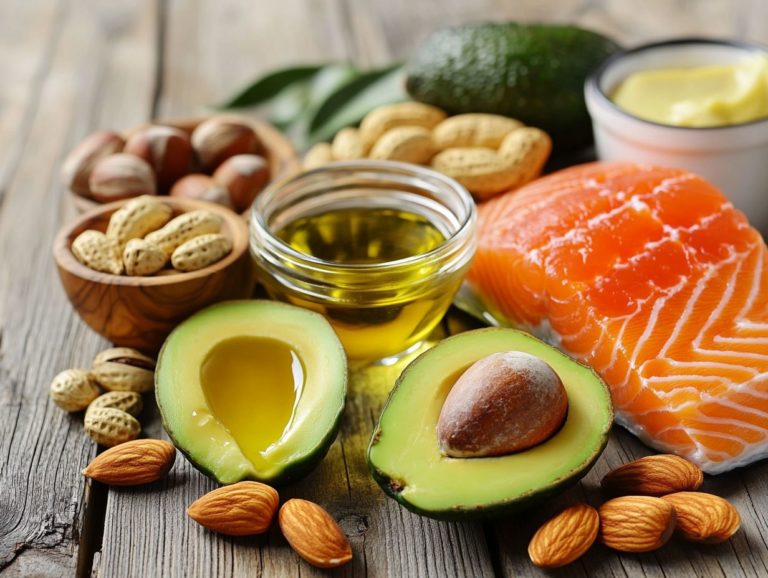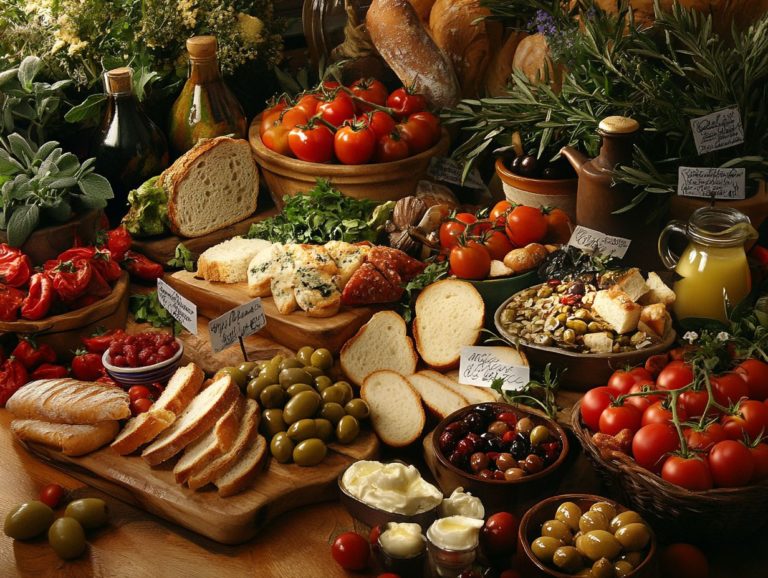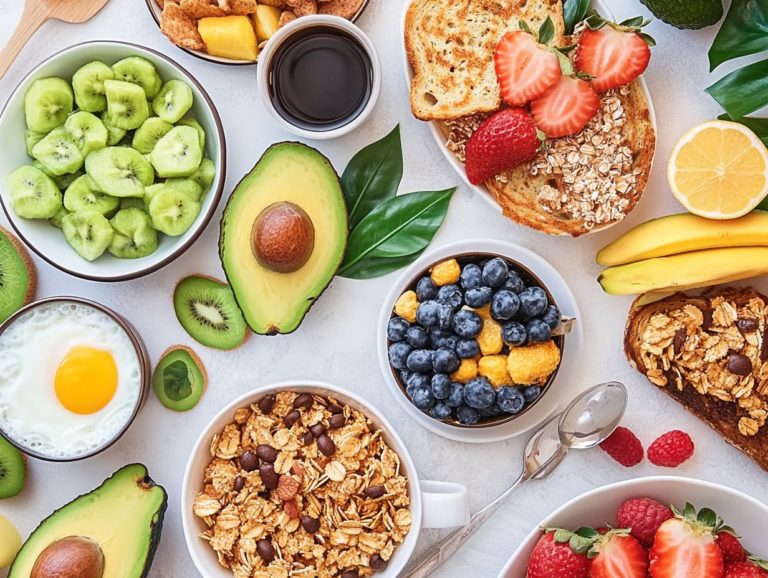Is Organic Always Healthier? The Myths
As you navigate your journey towards a healthier lifestyle, organic food has undoubtedly caught your attention as a popular choice.
But what does “organic” truly mean? Is it always the superior option? This article delves into the definition and regulations governing organic products. It also shines a light on their nutritional and environmental benefits while debunking prevalent myths.
You ll find insights into scenarios where organic options may not necessarily be the healthier choice. Plus, there are practical tips for making informed decisions.
Embark on this exploration of the complexities surrounding organic food and elevate your understanding of what it entails.
Contents
- Key Takeaways:
- Understanding Organic Food
- Why Choosing Organic is a Game-Changer!
- Myths About Organic Food
- When Organic May Not Be Healthier
- Making Informed Choices
- Frequently Asked Questions
- Is organic food always healthier compared to non-organic food?
- Does organic food have more nutrients than non-organic food?
- Are all organic foods free from pesticides?
- Is organic meat always healthier than conventionally-raised meat?
- Are organic foods always more expensive than non-organic foods?
- Is buying organic food the only way to eat healthy?
Key Takeaways:
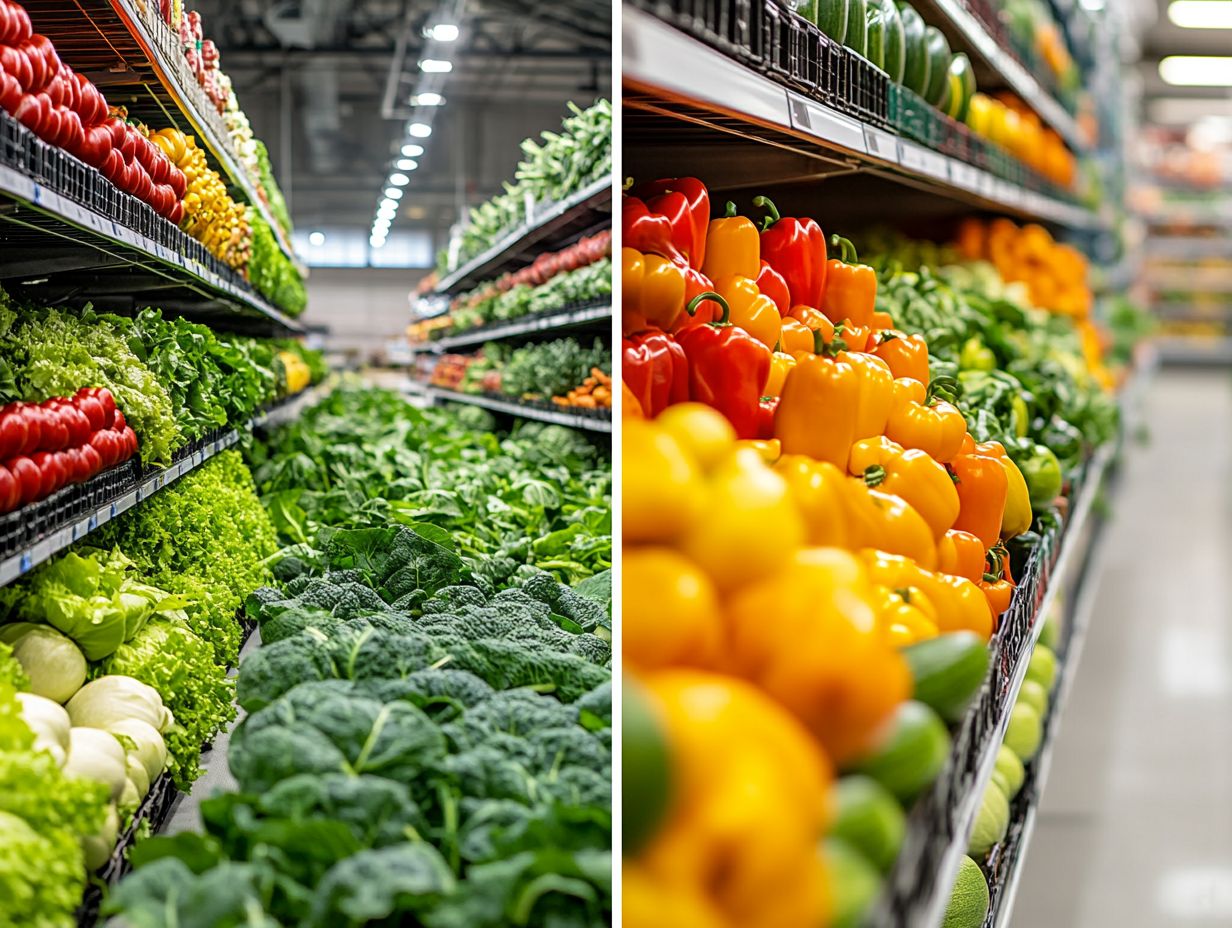
Organic food is not always healthier. There are many misconceptions surrounding its benefits.
While organic foods may have some nutritional and environmental advantages, factors such as cost, availability, and personal health needs should be considered when choosing them.
To make informed choices about organic food, it is crucial to understand the regulations, benefits, and myths surrounding it. Always prioritize overall nutrition when choosing between organic and conventional options.
Understanding Organic Food
Understanding organic food requires a thoughtful exploration of its definition and the crucial regulations enforced by the USDA (United States Department of Agriculture), the agency that sets organic standards.
Organic food is cultivated through methods that prioritize sustainable agriculture and environmental stewardship. It avoids man-made chemicals used to kill pests and fertilizers that can threaten soil quality and water safety.
The aim is to offer you healthier options that enhance your nutrition and well-being while addressing concerns about chemical residues and health risks linked to conventional farming methods.
Definition and Regulations
The definition of organic food is rooted in stringent regulations set forth by the USDA.
These regulations cover a wide array of criteria that farmers must comply with, such as prohibiting synthetic pesticides and fertilizers, requiring crop rotation, and using organic seeds.
For example, if you re cultivating organic corn, you must not only avoid harmful chemicals but also adopt soil management techniques that enhance fertility and biodiversity.
This commitment to organic practices is essential. It plays a significant role in ensuring food safety and quality, providing consumers with products that are free from harmful residues.
By following these guidelines, you contribute to environmental health and bolster consumer confidence in the organic label.
Why Choosing Organic is a Game-Changer!
Opting for organic food presents you with a wealth of benefits. These include improved nutritional content, minimized exposure to harmful pesticides, and a commitment to sustainable farming practices that ultimately nourish the environment.
These advantages resonate deeply with those seeking healthier dietary choices. Organic food is frequently linked to higher levels of antioxidants and essential nutrients due to its more natural cultivation methods.
Embracing organic options not only enhances your well-being but also aligns your choices with a more sustainable future!
Nutritional and Environmental Advantages
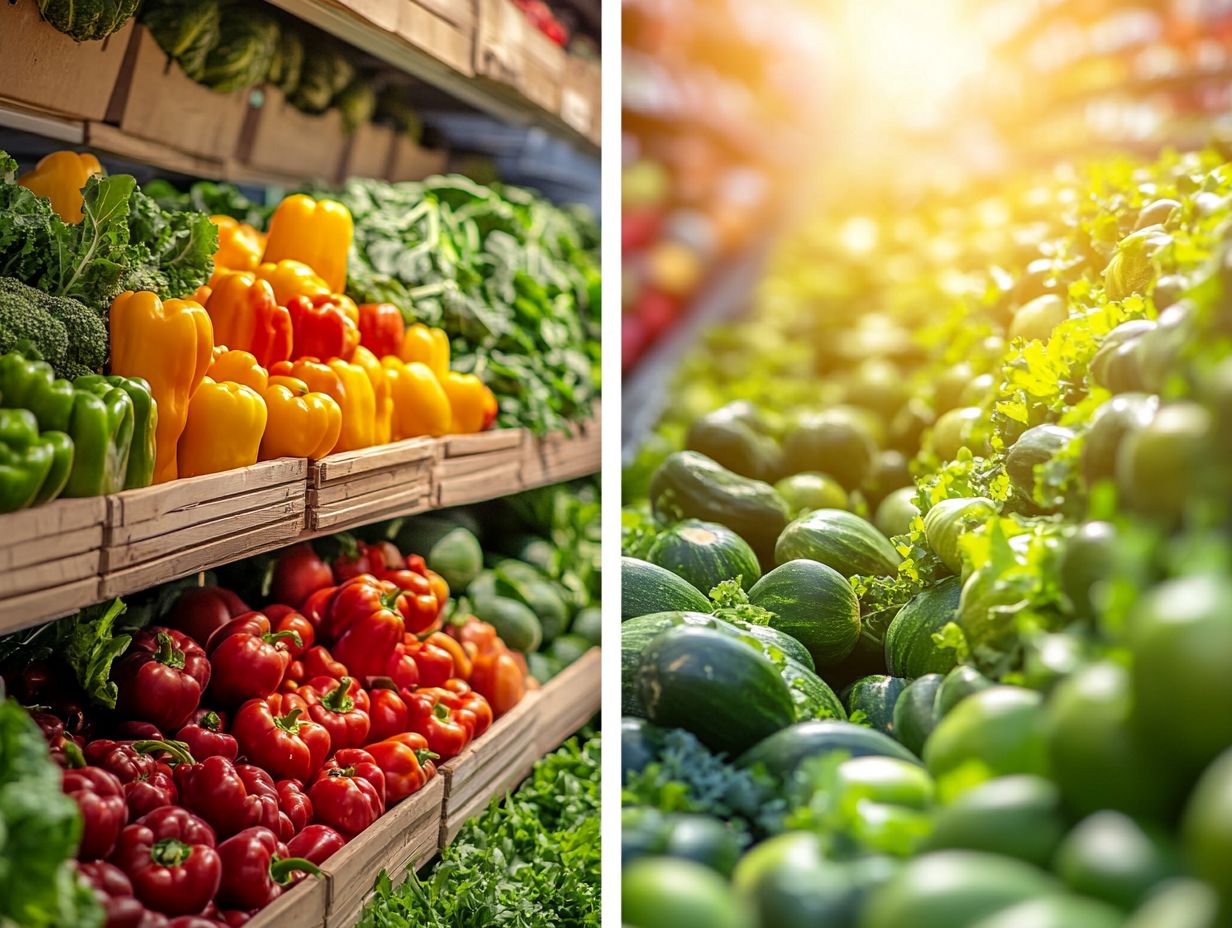
Organic food often stands out for its nutritional superiority compared to conventional options. Numerous studies highlight that it typically contains higher levels of essential nutrients and lower pesticide residues.
This distinction enables you to make healthier choices and encourages a deeper exploration of the farming methods that yield such benefits. When you choose organic produce, you re likely to enjoy richer concentrations of vitamins, minerals, and antioxidants elements critical to your overall health.
These enhanced nutritional profiles can play a significant role in disease prevention. The farming practices associated with organic production also greatly benefit environmental health.
By steering clear of synthetic fertilizers and pesticides, organic methods promote improved soil quality and support a diverse ecosystem. This creates an environment that fosters beneficial microorganisms while minimizing chemical exposure, ultimately benefiting both you and the planet.
Myths About Organic Food
Despite the popularity of organic food, several myths and misconceptions persist. These can mislead consumers about its safety and health benefits.
Many people think that all organic food is completely free of substances used to kill or control pests or that it provides significant nutritional advantages over conventional options. However, research suggests that these differences may not be as major as one might assume.
Debunking Common Misconceptions
Understanding common misconceptions about organic food is essential for making informed choices, especially regarding pesticides and nutrient content.
You might believe that organic farming avoids pesticides altogether, but this isn’t entirely true. Research shows that organic farming uses certain naturally derived pesticides, which are often less harmful to the environment and human health compared to synthetic pesticides used in conventional farming.
It’s crucial to recognize this nuanced perspective. Studies reveal that the safety levels of pesticides in both systems are closely monitored. In fact, organic foods can sometimes have similar or even better nutrient profiles, largely due to healthy soil and effective farming practices.
When Organic May Not Be Healthier
While you may see organic food as the healthier option, certain circumstances can challenge that view. Factors like price, availability, and individual health needs can significantly impact this perception.
In some cases, the higher price of organic products doesn’t guarantee better nutrition. This raises questions about whether such an investment aligns with your dietary choices and lifestyle.
Factors to Consider When Choosing Organic
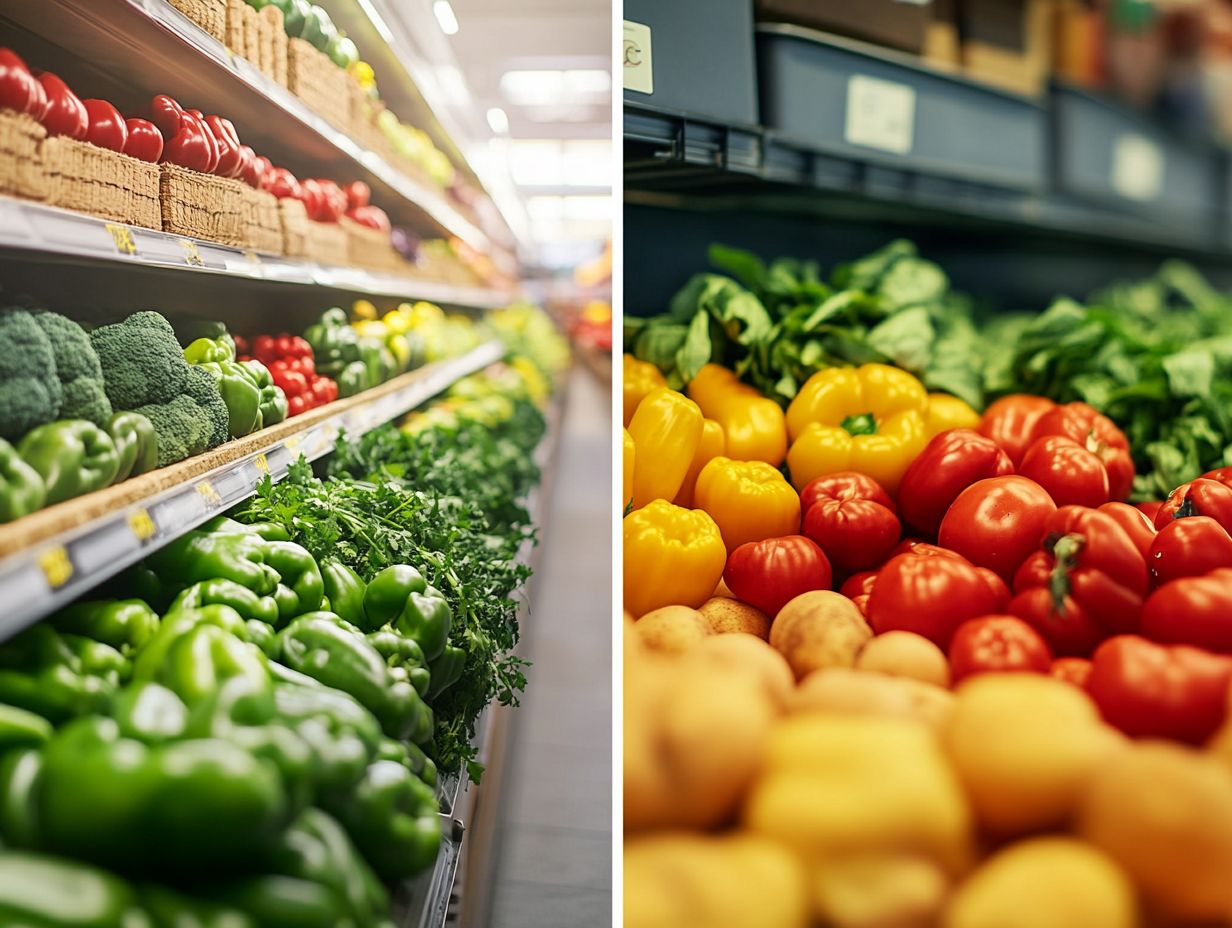
When selecting organic food, consider various factors, including price, availability, and personal health needs.
Understanding the financial implications is vital, especially since organic options can often be pricier than conventional foods. For many, balancing their budget with potential health benefits is crucial.
Local market availability also significantly influences your choices. Fresh, organic produce can vary greatly depending on where you live.
Learning to read food labels effectively helps you identify genuine organic products and avoid misleading claims.
By making informed decisions, you’ll not only shop smarter but also boost your overall health while becoming more aware of your dietary choices.
Making Informed Choices
Choosing organic food involves diving into food labels, understanding health benefits, and implementing practical strategies that enhance your dietary decisions.
Grasping these elements allows you to navigate the organic food market with confidence.
Tips for Choosing the Most Nutritious Options
To select the most nutritious organic options, focus on understanding food labels, seasonal produce, and local sourcing. This approach enhances both nutrition and flavor, elevating your culinary experience!
By doing this, you empower yourself to make choices that not only improve your health but also support local farmers and reduce environmental impact. Choosing seasonal produce often leads to fresher items, as they are harvested at their peak, resulting in better taste and nutrient density.
When reading food labels, pay close attention to certifications, ingredient lists, and serving sizes. This diligence helps you tell the difference between genuinely healthy options and those that may appear organic but lack essential nutrients.
Making thoughtful selections is crucial for maintaining a balanced and health-conscious diet.
Frequently Asked Questions
Now that you know the facts, take charge of your food choices today!
Is organic food always healthier compared to non-organic food?
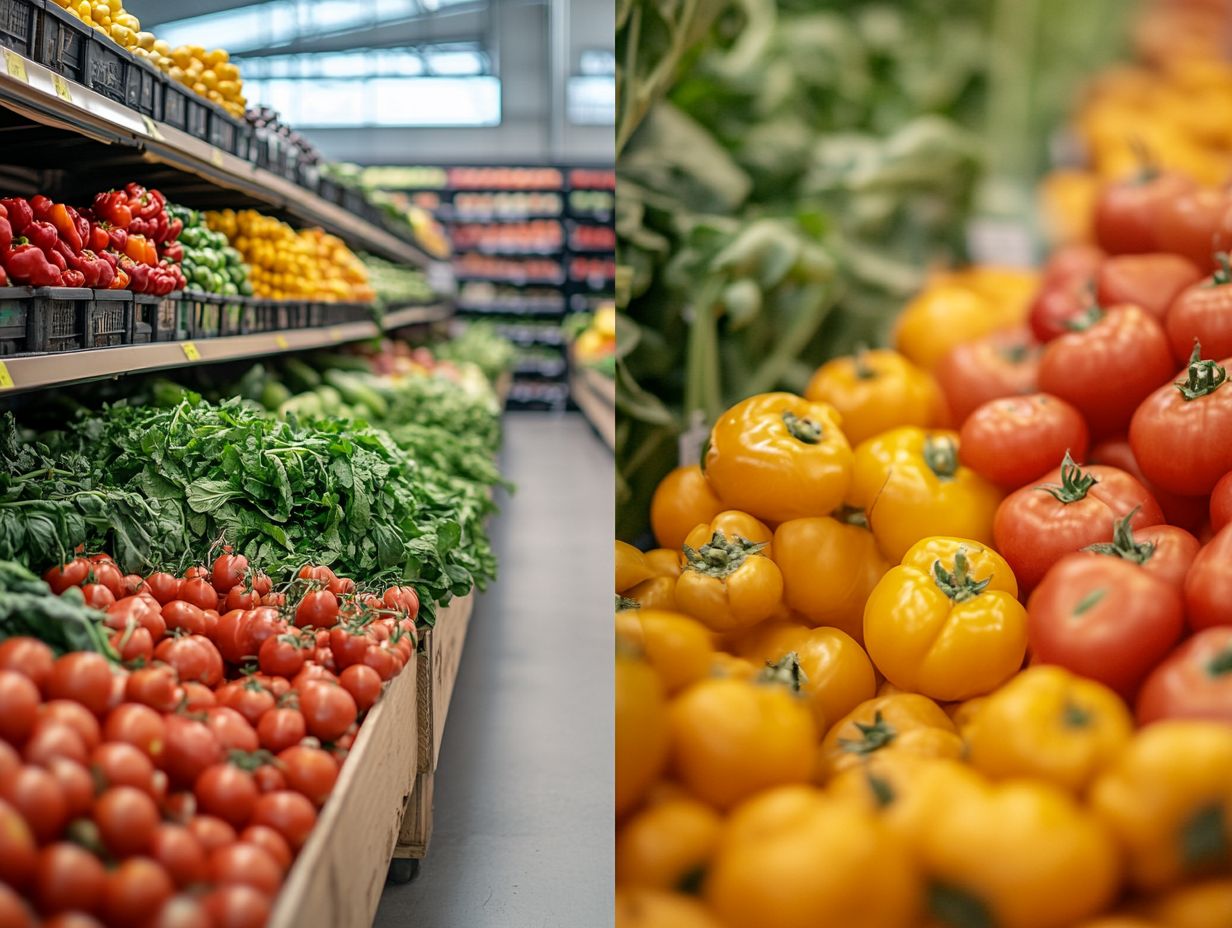
No, this is a common myth. Organic food is grown without chemicals made in a lab, but it isn’t always healthier.
Other factors, like nutrient content and how food is processed, also affect its healthiness.
Does organic food have more nutrients than non-organic food?
Not necessarily. Some studies suggest organic fruits and veggies have slightly more nutrients.
However, the difference is often too small to say organic food is always better.
Are all organic foods free from pesticides?
No, that s a misconception. Organic farms can use certain natural pesticides.
However, they cannot use lab-made pesticides.
Is organic meat always healthier than conventionally-raised meat?
Not necessarily. Organic meat comes without antibiotics and hormones.
Yet, factors like the animal’s diet and living conditions also play a big role in its healthiness.
Are organic foods always more expensive than non-organic foods?
Not always! Organic food can cost more because of stricter rules and production methods.
But you ll be surprised by the affordable organic options out there!
Is buying organic food the only way to eat healthy?
No, eating healthy isn’t just about organic food. A balanced diet includes a variety of fruits and vegetables.
Don’t forget to limit processed foods and watch your portion sizes!



